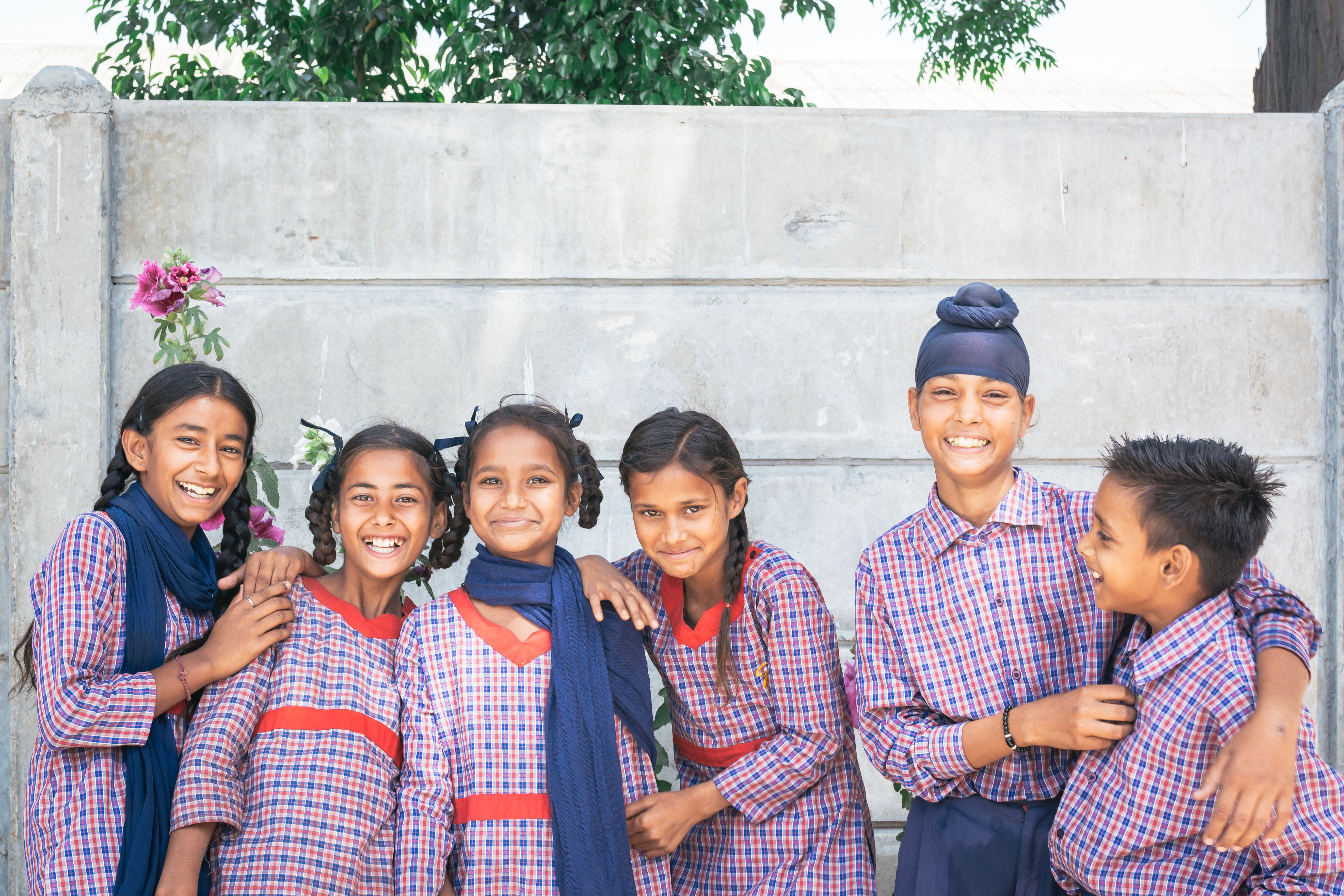Brides-to-be, mothers-in-waiting, cheap labor – are some examples of how girls and women are viewed in many parts of the world, including India. Norms and gender stereotypes undermine the potential of girls and women in their own eyes and by extension within their own communities. Despite India’s commitment to advancing gender equality, girls continue to face formidable challenges in accessing equal and fair opportunities. Addressing these challenges requires establishing and garnering support for positive behaviors in order to demonstrate that change is indeed, possible.
This is especially important during adolescence when identities, ideas and belief systems are solidifying in both girls and boys. It is during this time in their lives that opportunities exist to instill positive alternative behaviors and to challenge discriminatory norms.
The silent yet resounding acceptance of gender-based discrimination must be challenged for an equal tomorrow to become a reality. This will only be possible when the voices and perspectives of adolescents are amplified and inequitable practices shunned. Adolescents must be allowed opportunities to foster their decision-making skills and enable individual and collective reflection around gender discrimination and equality.
Towards this end, Girl Rising’s Schools Campaign is honing adolescents’ – both girls and boys – cognitive and socio-emotional skills. Designed as a school-based gender sensitization and youth empowerment curriculum, the Schools Campaign leverages catalytic content to spotlight both challenges and positive alternatives. The curriculum, comprising a Teachers’ Guide, a set of storybooks and the compelling stories told on film of girls from around the world, is a 24-week program and consists of six modules bringing attention to early and forced child marriage, early pregnancies, poverty, and harassment. These modules enable introspection, inspire conversations, and stir solution-based discussions around access to opportunities. The participatory and engaging activities address deep-seated issues and expose some of the underlying beliefs and cultural practices that restrict or discriminate against girls (and even boys).
Based on Fledging Fund’s framework, the powerful stories of everyday girls are the core of the curriculum, capturing the students’ attention, asking them how they might address the challenging topics and then inspiring public action. Thus far, the curriculum has been implemented by local teachers in over 260 schools across 5 states in India covering 45,000 students.
Recent findings from an external evaluation of the Schools Campaign reflect the effectiveness of the Fledging Fund’s framework. Nearly 1,700 students participated in a mixed-methods study to evaluate the program. Following their participation, girls and boys had more gender equitable attitudes related to gender roles, privileges, restrictions, gender attributes, and gender violence, and they were better able to articulate examples of gender inequality and discrimination in their communities. They were also more likely to speak up and act against gender discrimination and had significantly greater internal locus of control, indicating their belief that their actions make a difference in the outcome of their own life. As a result, Girl Rising believes that they will be more likely to engage in positive behaviors and relationships. “Marriage is the only option after school,” seventh-grade adolescents – including boys – would state almost in a unison prior to participating in the GR program. Accepted as fate, the underpinnings of the tradition of early marriages had gone unquestioned for generations. With the curriculum stirring critical reflection and inspiring negotiation skills, the life course of many adolescents appears to have undergone a welcome change. “Earlier, I thought that girls only went to school to get married soon”, an adolescent girl stated. “It is only now that I think girls can dream and work too. In fact, work after marriage too,” she concluded.
The Girl Rising Schools Campaign has enabled students to take small yet significant steps in challenging the status quo and in fostering a sense of togetherness in overcoming barriers impeding equitable access. Investing in adolescents, in essence, is equivalent to investing in the future. A future devoid of any discrimination, devoid of gender barriers, can only be built when adolescents – both girls and boys – are well-equipped to voice their perspectives and lead change. And when teachers, parents and communities can also re-examine ‘what has always been’.
To learn more about Girl Rising’s work in India, visit www.girlrising.org.
